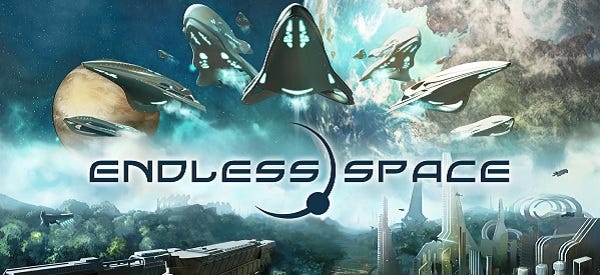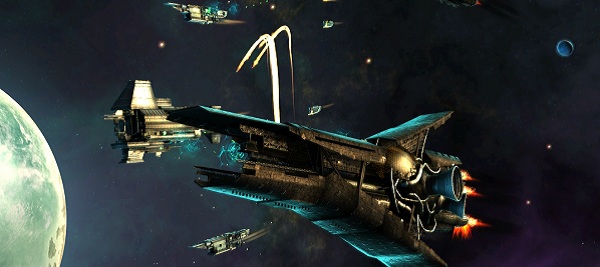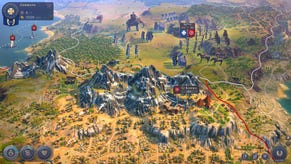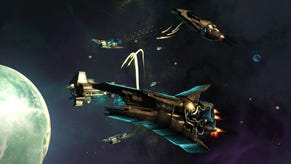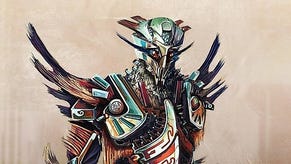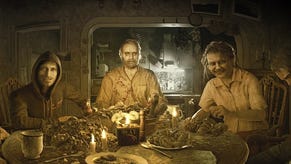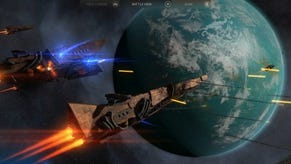A Better Beta: Infinite Joy In Endless Space
A home for Horace?
Maybe the joy isn’t quite infinite and maybe the space isn’t endless in the sense that might be imagined on first exposure to the title, but turn-based space conquest game Endless Space is already the second great entry in my 2012 feast of strategy gaming. If Crusader Kings II was a roasted hog with a side order of roasted hog, washed down with a keg of mead containing roasted hogs as booze-croutons, Endless Space is a vacuum-packed futurepill of a meal: nutritious, filled with flavour, perfectly formed. And it’s only just reached beta.
Forget the beta thing completely, or at least any negative connotations it holds. Playing a beta is fine but, as Brian Mitsoda pointed out to me recently, a lot of the time people aren’t prepared for how flawed or downright broken an incomplete game can feel. None of that matters with Endless Space. If I hadn’t been told it wasn’t ready for release I wouldn’t have known. Some games don’t feel this polished after a few months of post-launch patching. Simply put, Endless Space is already a more complete, balanced and refined game than some of its direct competition.
Let’s start with the interface. You’re never more than a click or two from where you need or want to be. On top of that, the game always ensures the player knows what tasks remain to be completed when a turn ends. There’s no excuse for missing anything important because little boxes wave at you from the right hand side of the screen demanding attention. Click on them and they’ll tell you what’s on their mind, as well as containing extra information which is available by simply hovering a cursor over their bits and pieces, and clickable links to the screens where all the options await your attention.
That doesn’t mean it’s impossible to peel back the layers and delve in the guts of the thing though. Ship design, planetary management and plotting a path through the web of available research all allow for deeper complexity. Thanks to tutorials that guide and inform quickly and efficiently on first use of each screen, Endless Space is an easy game to grasp. Easy, but not simple.
It starts simple and here’s one of the cleverer things about the design, something that I only noticed after spending a significant amount of time playing; through research and exploration the game becomes more complex. That seems like an idiotic statement at first, because surely it's always the case but that’s not entirely true. In many strategy games there’s more and more to manage as time goes on, but the number of actual options available and the scope of the world hit a ceiling fairly quickly. Things replace other things rather than slotting in alongside them. That’s true in Endless Space as well, to an extent, but there’s also a blossoming of new ways to travel, fresh colonisation possibilities, and methods to switch production on a local basis or even to alter the entire direction that your faction is pushing in.
Scope is part of this. The game feels as epic and mysterious as any of its type. It’d be mad not to tip an absurdly large hat toward the music which is the exact audio equivalent of admiring the beauty, fragility and variety of the colourful spheres scattered through the celestial void. Then there are the ships, elegant voyagers that can be modified, refitted and sent plunging into flame-scarred systems for a bout of mostly automated combat.
There’s no direct control once the torpedoes start to fly and the beams start to beam, instead for each phase of the fight – long range, medium range, close – you decide on your overall strategy and then watch the results. They are extremely pretty results even when it’s the grand fleet you’ve spent hours constructing that’s providing most of the pyrotechnics by inconveniently exploding into bits.
I’m perfectly satisfied with having a less hands-on role, considering myself an emperor who wouldn’t know a frontline if it snuggled up in bed next to him rather than a pilot or admiral, but given how exquisite the modelling of combat is in pure visual terms, I imagine some people will see videos or screenshots and assume it’s more involved than it actually is. They will be disappointed, although it’s an area of the game that may receive further development. If so, I’d like the option to keep this mostly self-resolving combat so that I can concentrate on the tech and loadouts of my ships rather than their specific manoeuvers.
The eight factions lend themselves to different playstyles, not only because of the bonuses inherent to them but because of the unique techs they can research later in the game. There are the obvious – rapid researchers, great diplomats, noble warriors – but there are a couple of oddities as well. The Cravers are forefront among them. Every faction is imperial, establishing colonies and expanding is the only real goal in the early game, but The Cravers consume everything and if they don’t expand quickly enough they will consume themselves. No diplomacy, just growth and feeding.
Nice one, The Cravers, you single-minded hunger-bastards. I’m also an admirer of Horatio, a faction named after the trillionaire who founded them and used alien cloning technology to create a race of people who looked just like him. Now he wants to conquer all that is known and unknown and rebuild it, quite literally, in his own image. Gloriously bonkers.
There is a great deal of fiction shoveled like coal into the game’s engines, making it burn brighter than it otherwise would. Not only do the factions have their stories and their reasons, the resources, abandoned moon temples and artifacts that a new colony might unearth all have entertaining descriptions. All of that matters to me; large quantities of decent flavour text can be the difference between an impressive calculating device and a font of narrative delight.
Endless Space may be the former - I’d have to pull apart all the numbers to know and they hide, as numbers do – but it’s certainly the latter. Take heroes, who can be governors or commanders, they're essentially a list of occasionally increasing bonuses applied to a planet or a fleet. But they're more than that. They have names and backgrounds, just as the weird plants and anomalies on a planet are essentially pluses and minuses but spark the imagination and provide a much more detailed picture.
Concerns? The AI isn’t the sharpest I’ve ever seen, although it’s still managed to surprise me on occasion. Admittedly, the surprise is sometimes of the sort, “Why have you built a colony on the planetary equivalent of a poisonous icecube?” but it’s surprise nonetheless. It’s the one area I’d like to see improvement – the one area I’m quibbling about, in a beta. I’ve still had some entertaining encounters mind, including a memorable and lengthy three-way conflict that ended in a moody stalemate. I didn’t want war at all as I was attempting a diplomatic victory. Long-term plans derailed, my species retreated into defensive shells and cursed the belligerence of all things alien to us.
A sort of stalemate is common. Upon first encountering a faction, a state of cold war is initiated meaning that any ships outside of a planet’s sphere of influence, which grows as the planet develops, is fair game. This makes exploration hazardous and considered without plunging the worlds into total war at the slightest provocation. There’s also a smart feature whereby new colonies are tiny outposts at first, without any sphere of influence whatsoever. This means they, like ships wandering far from home, can be taken during a state of cold war. In practice, it means they must be protected, which necessitates military buildup, causing even the coldest of wars to become an arms race.
The short version of the above is this: Endless Space is the interstellar strategy game I’ve desired for a long time, with new discoveries on almost every turn, the possibility of a wide variety of routes to success and failure, an interface that other developers in the field should be borrowing from right now, and superb aesthetics. I haven’t even mentioned the multiplayer that has now been added ot the beta. I’ll be looking at that when the game goes gold. Cast your mind back to the obvious place, Master of Orion II, which this game doesn’t emulate but will happily sit alongside, but think also of Ascendancy, the best parts of which are here with a whole lot more.
Oh, and if you’ve been playing already, you do know about the support module list scrolling down, don’t you? It’s alarming how many people don’t spot that. There may be so much more to all of this than you thought.
I'll be talking with the developers soon to learn just how much more there is to see, the collaborative Games2Gether scheme and how what could be one of 2012s great success stories took so long to come to my attention. The beta is available to play now for those who preorder the game.
